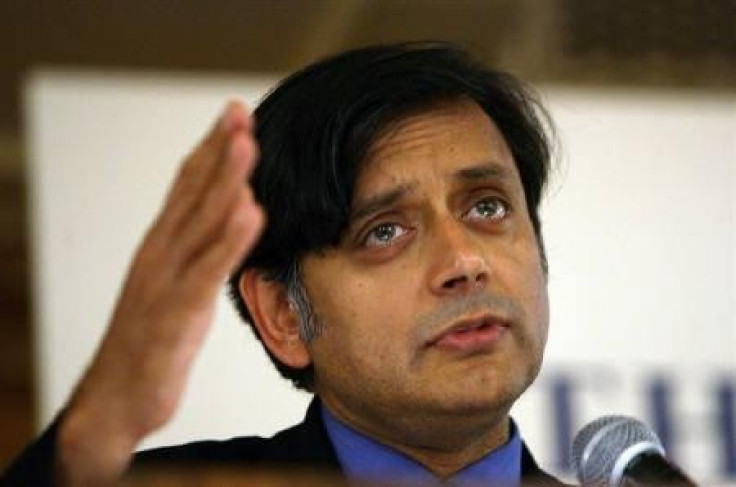Shashi Tharoor seeks 'a pound a year for 100 years' as British reparation for India's colonisation

A hard-hitting speech by a former Indian minister and under secretary-general at the United Nations seeking reparations from Great Britain for its colonisation of India has gone viral on YouTube.
Shashi Tharoor, a member of the Indian parliament and the Congress party, sought Britain's moral acknowledgement to atone for the depradations of its 200-year-rule over India.
Britain's rise for 200 years was financed by this depredation, he said, adding that "personally I would even be happy if the UK pays a pound a year for the next 100 years". It is not the aid but the principle that is important, he said.
Speaking at a debate on 28 May at the Oxford Union, a debating society at the University of Oxford, on : "This House Believes Britain Owes Reparations to her Former Colonies", Tharoor spoke of how India's share of the global economy fell from 27% to less than 2% during British rule.
Indians paid fat salaries to British officials only for oppressing them in return, he said in his humorous yet hard-hitting dig.
The Union owes India reparations for the economic and psychological decline of its people during the rule, he said noting that India was Britain's biggest cash cow in that period.
Tharoor picked on the exploitation of the handloom industry to show how the British de-industrialised the Indian economy and turned weavers into beggars after taking away their looms and equipment.
By looting the country, the British "turned the Hindi word 'loot' into a habit."
The former minister noted how Churchill diverted food from famine-hit areas of Bengal to be piled as European reserves, leaving four million to die. To queries from a few British officials, Churchill merely asked, "Why hasn't Gandhi died?" said Tharoor.
Touching upon the British rule that set off violence and racism, Tharoor quipped, "The Sun couldn't set on the British empire, because even God couldn't trust the English in the dark."
World War costs
Responding to an earlier demand for quantification of the damage, Tharoor spoke of the two World Wars and the costs to India in terms of man and money. While the first World War cost India £8bn, Britain, he said, owes India £1.25bn the second World War, which also took away over 50,000 lives and injured many more.
On the claim of how the British helped build India's large network of railways, Tharoor noted that this was not for the needs of the public as much as to serve British interests in India and to take away the loot.
It was a "British private enterprise at Indian public risk," he said, pointing to how development of the railways was not a necessary fallout of colonization in many countries.
The British rules led to dehumanisation of Africans in places like the Caribbean and undermined property rights, and was directly responsible for the persisting ethnic and religious tensions in these countries, said Tharoor focussing on the moral debt owed by the British.
As to the claim that India has the British to thank for democracy, Tharoor said, "It's a bit rich to oppress, enslave, kill, torture, (and) maim people for 200 years and then celebrate the fact that they are democratic at the end of it. We were denied democracy, so we had to snatch it, seize it from you."
Responding to the argument that reparations will only empower Mugabes of the world, a reference to the Zimbabwean dictator, Tharoor scoffed at the idea and pointed out that reparation he suggested was more "a tool for you to atone for the wrongs, not to empower anyone".
Reparations cannot make up for the horrors or loss of lives, said Tharoor. It is more about the ability to "acknowledge a wrong rather than give aid".
Tharoor's side won the debate 185 votes to 56.
The speech has been widely appreciated in India, says the Hindustan Times, while the Indian Express calls it "brilliant and lucid".
Public comments too have mostly welcomed the speech.
But on the sore note of more aid, BBC writes that India got £269 million in aid from the UK in 2013. Why a nuclear-armed nation with a space programme and a booming economy should still get British aid has been questioned in some quarters, says the report.
See the full speech below.
© Copyright IBTimes 2024. All rights reserved.





